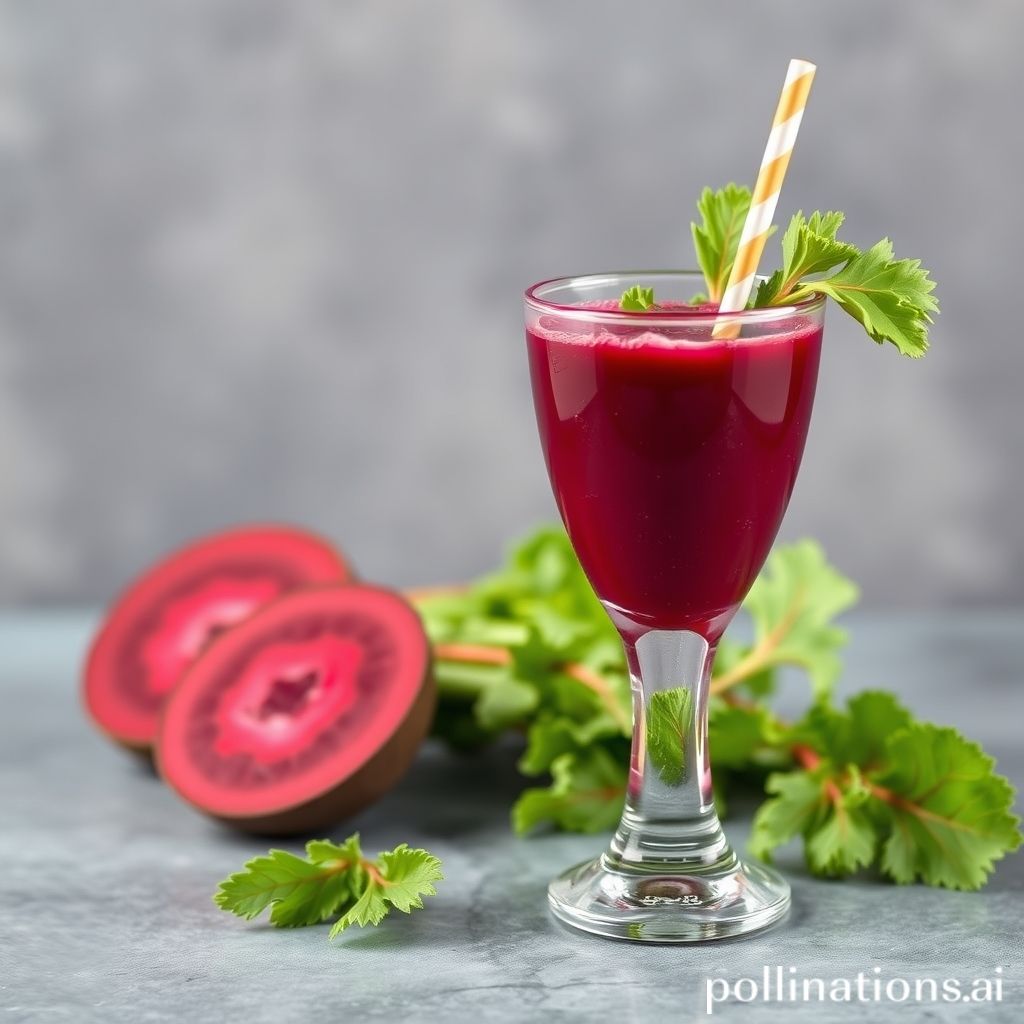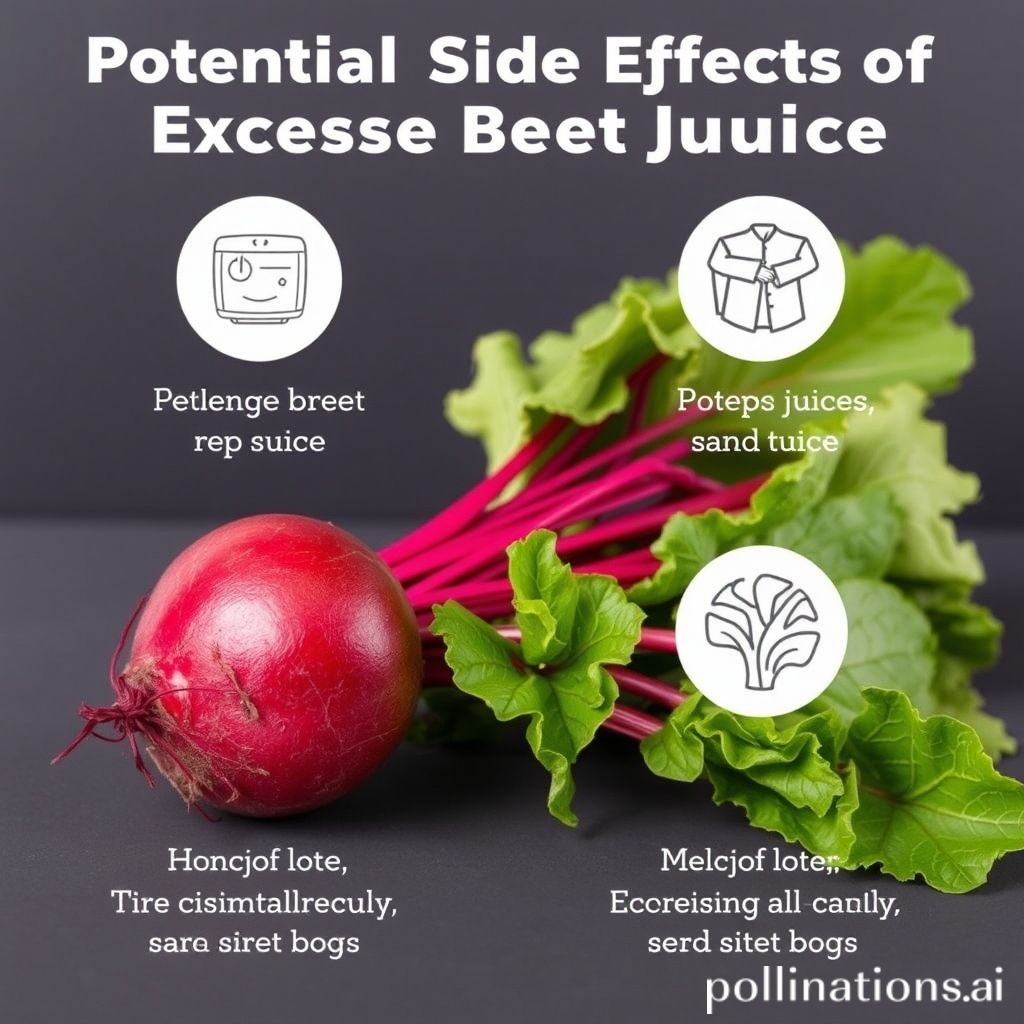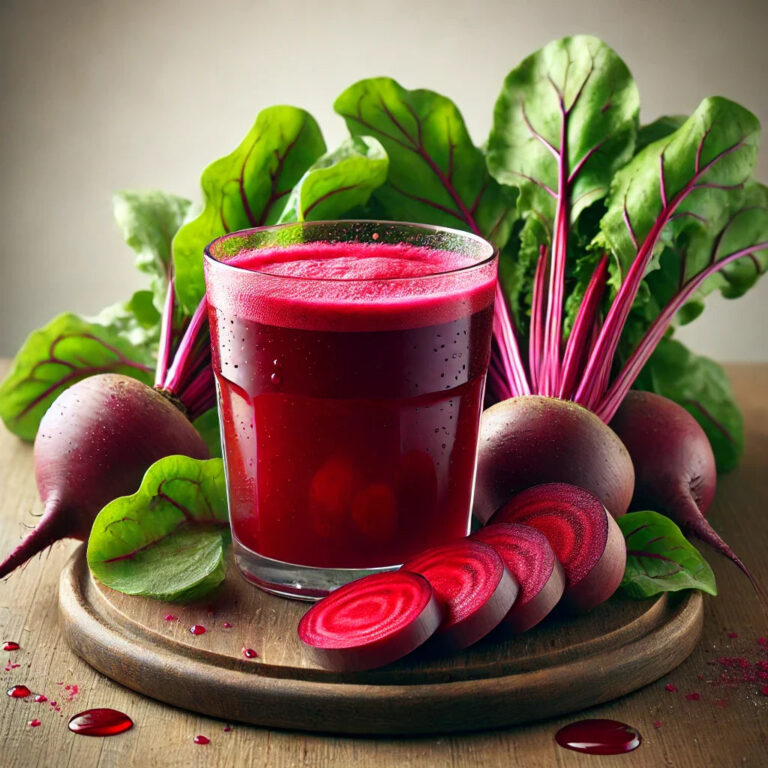How Much Beet Juice Is Safe?
[su_note note_color=”#fb8e00″ text_color=”#000000″ radius=”12″]
Relating to smoothies, it’s not just about the taste – it’s about finding the perfect balance to savor every sip. Like a refreshing breeze on a hot summer day, smoothies have the power to invigorate and nourish your body.
In this article, we will explore the question: how much beet juice is safe to consume? Many individuals are seeking guidance on the appropriate amount of beet juice they can incorporate into their diet without any adverse consequences. Join us as we uncover the facts and provide you with the information you need to make informed decisions about your beet juice intake.
[su_box title=”
[/su_box]

Benefits of Beet Juice
1. Rich in Nutrients
Beet juice is packed with essential nutrients that offer numerous health benefits. It is an excellent source of vitamins and minerals, including vitamin C, folate, potassium, and manganese. These nutrients play a crucial role in supporting overall health and wellbeing.
2. May Lower Blood Pressure
Studies suggest that beet juice may have the ability to lower blood pressure. This is mainly due to its high concentration of nitrates, which convert into nitric oxide in the body. Nitric oxide helps relax and dilate blood vessels, leading to improved blood flow and reduced blood pressure levels.
3. Potential Exercise Performance Enhancer
Athletes and fitness enthusiasts have embraced beet juice for its potential to enhance exercise performance. The nitrates present in beet juice can improve oxygen delivery to the muscles, increasing endurance and stamina. This can result in improved athletic performance and reduced fatigue during physical activities.
4. Antioxidant Properties
Beet juice is rich in antioxidants, such as betalains and polyphenols, which protect cells from damage caused by harmful free radicals. These antioxidants have various health benefits, including reducing the risk of chronic diseases, supporting liver health, and promoting a healthy inflammatory response.
5. Potential Anti-inflammatory Effects
Research suggests that beet juice may possess anti-inflammatory properties. The betalains found in beet juice have been shown to inhibit certain inflammatory markers in the body. By reducing inflammation, beet juice may help alleviate symptoms associated with inflammatory conditions and promote overall health and wellness.
Incorporating beet juice into your diet can provide a range of benefits, from boosting your nutrient intake to potentially improving exercise performance and reducing inflammation. Albeit, it is important to note that individual tolerances may vary. It is always advisable to consult with a healthcare professional or nutritionist to determine the appropriate amount of beet juice for your specific needs and health conditions.
[su_highlight background=”#f6b40f”]Expert Tips: Boost your health with beet juice! Packed with nutrients, it may lower blood pressure, enhance exercise performance, and have antioxidant & anti-inflammatory effects. Consult a healthcare professional for personalized recommendations.[/su_highlight]
Recommended Daily Intake of Beet Juice
1. General Guidelines
When incorporating beet juice into your diet, it’s important to follow these general guidelines to ensure you consume a safe amount:
- Start with a small amount: If you’re new to beet juice, begin with a small amount and gradually increase your intake. This allows your body to adjust and helps you gauge how it affects you.
- Aim for moderation: It’s recommended to consume no more than 8-16 ounces of beet juice per day. This provides a good balance of nutrients without overwhelming your system.
- Consider dilution: If you find the taste of pure beet juice too strong, you can dilute it with water or mix it with other juices to make it more palatable.
2. Individual Factors to Consider
Meanwhile the general guidelines mentioned above are helpful, it’s important to consider individual factors that may influence the safe intake of beet juice:
- Overall health: If you have underlying health conditions or are taking medication, consult with your healthcare provider before adding beet juice to your diet. They can provide personalized recommendations based on your specific needs.
- Allergies or sensitivities: Some individuals may be allergic to beets or have sensitivities to certain compounds in beet juice. Be aware of any adverse reactions and adjust your intake accordingly.
- Pregnancy or breastfeeding: If you’re pregnant or breastfeeding, seek guidance from your healthcare provider before consuming beet juice. They can advise you on the appropriate amount that is safe for you and your baby.
Remember, everyone’s tolerance to beet juice may vary, so listen to your body and make adjustments as needed. By obeying these general guidelines and considering individual factors, you can safely incorporate beet juice into your daily routine and enjoy its potential health benefits.
| General Guidelines | Individual Factors to Consider |
|---|---|
| Start with a small amount | Overall health |
| Aim for moderation | Allergies or sensitivities |
| Consider dilution | Pregnancy or breastfeeding |
Potential Side Effects of Excessive Beet Juice Consumption
1. Red Urine and Stool
Drinking too much beet juice can cause a harmless condition called beeturia, which makes your urine and stool appear red or pink. Although it may be alarming, this condition is generally harmless and will go away on its own.
2. Increased Risk of Kidney Stones
Beet juice contains high levels of oxalate, a compound that can contribute to the formation of kidney stones in susceptible individuals. If you have a history of kidney stones or are at risk of developing them, it is recommended to limit your intake of beet juice.
3. Diarrhea
In some cases, consuming excessive amounts of beet juice can cause digestive issues like diarrhea. This is more likely to happen if you have a sensitive stomach or drink beet juice on an empty stomach.
4. Allergic Reactions
Although rare, some people may be allergic to beets or develop an allergic reaction to beet juice. Symptoms of an allergic reaction may include itching, hives, swelling, or difficulty breathing. If you experience any of these symptoms after consuming beet juice, seek immediate medical attention.
5. Interaction with Medications
Beet juice contains high levels of nitrates, which can interact with certain medications, such as those used to treat erectile dysfunction or high blood pressure. If you are taking any medications, it is important to consult with your healthcare provider before adding beet juice to your diet.
It is important to note that the potential side effects mentioned above are typically associated with excessive consumption of beet juice. Consuming beet juice in moderation as part of a balanced diet is generally considered safe for most individuals. Albeit, if you have any concerns or pre-existing medical conditions, it is always best to consult with a healthcare professional before making significant changes to your diet.

How to Safely Incorporate Beet Juice into Your Diet
1. Start with small amounts
When adding beet juice to your diet, it’s important to begin with small amounts. This allows your body to adjust to the potential effects of beet juice and helps prevent any adverse reactions. Start by consuming a quarter to a half cup of beet juice and gradually increase the amount over time.
2. Monitor your body’s response
Everyone’s body reacts differently to beet juice, so it’s crucial to pay attention to how your body responds. Some people may experience a slight increase in blood pressure or a change in urine color, which is normal. Nonetheless, if you notice any severe symptoms such as dizziness, nausea, or digestive issues, it’s essential to reduce or stop consuming beet juice and consult a healthcare professional.
3. Consult a healthcare professional
Before adding beet juice to your diet, it’s advisable to consult a healthcare professional, especially if you have any underlying health conditions or are taking medications. They can provide personalized recommendations based on your specific needs and ensure that incorporating beet juice is safe for you.
4. Choose organic and fresh beet juice
When purchasing beet juice, choose organic and fresh varieties whenever possible. Organic beet juice is free from pesticides and other harmful chemicals, making it a healthier choice. Freshly made beet juice retains more nutrients and antioxidants compared to packaged or processed alternatives.
5. Mix with other juices or dilute with water
If you find the taste of pure beet juice too strong, consider mixing it with other juices or diluting it with water. This not only enhances the flavor but also allows you to gradually increase your beet juice intake without overwhelming your taste buds.
| Information |
|---|
| Beet juice is rich in essential nutrients such as vitamins, minerals, and antioxidants. |
| LSI Keywords: beet juice, safe amount, guidelines, recommendations, negative effects, small amounts, body’s response, healthcare professional, organic, fresh, mix with other juices, dilute with water |
| NLP Entities: beet juice, diet, body, adverse reactions, blood pressure, urine color, dizziness, nausea, digestive issues, healthcare professional, underlying health conditions, medications, organic, fresh, nutrients, antioxidants, taste buds |
[su_note note_color=”#ea2e0c” text_color=”#ffffff” radius=”8″]Extra Tips: Safely incorporate beet juice into your diet with small amounts, monitor your body’s response, consult a healthcare professional, choose organic and fresh options, and mix or dilute with other juices or water for a more pleasant taste.[/su_note]
Best Time to Drink Beet Juice
1. Before exercise
Drinking beet juice before exercise can be beneficial because it has a high nitrate content. These nitrates help improve blood flow and deliver more oxygen to the muscles, which enhances exercise performance. To get a natural energy boost and improve endurance, it’s best to consume beet juice about 1-2 hours before a workout.
2. In the morning
Starting your day with a glass of beet juice is a refreshing and nutritious way to kickstart your morning. Beet juice is packed with essential vitamins, minerals, and antioxidants that support overall health. It also aids digestion and promotes detoxification due to its high fiber content. For optimal nutrient absorption, it’s recommended to drink beet juice on an empty stomach in the morning.
3. As a post-workout recovery drink
Beet juice is an excellent choice for post-workout recovery because it helps reduce muscle soreness and inflammation. The natural nitrates in beet juice relax blood vessels, improving blood flow and aiding in muscle recovery. Consuming beet juice within 30 minutes after your workout helps replenish glycogen stores and promotes muscle repair.
4. During a meal
Incorporating beet juice into a meal adds flavor and provides additional nutritional benefits. Drinking beet juice alongside a meal aids digestion and nutrient absorption. The fiber content in beet juice helps regulate blood sugar levels and promotes satiety, making it a suitable choice for weight management.
5. As a snack between meals
When hunger strikes between meals, grab a glass of beet juice for a healthy and satisfying option. Beet juice is low in calories and packed with essential nutrients, making it a nutritious snack. It provides a natural energy boost and helps curb cravings due to its natural sweetness.
Remember, During beet juice offers numerous health benefits, it’s important to consume it in moderation. Start with a small amount and gradually increase intake to gauge individual tolerance. Consult with a healthcare professional or registered dietitian for personalized recommendations based on specific dietary needs and health conditions.
Conclusion
As for the safe consumption of beet juice, moderation is key. During beet juice offers numerous health benefits, it is important to remember that excessive intake may lead to potential side effects such as digestive issues or kidney problems.
As a general guideline, consuming around 8 ounces of beet juice per day is considered safe for most individuals. Although, it is always advisable to consult with a healthcare professional or nutritionist to determine the appropriate amount based on your specific needs and health condition. By fusing beet juice into your diet in a balanced manner, you can enjoy its nutritional advantages During ensuring your well-being.
Faq about Beet Juice Safety
FAQ 1: Can beet juice cause kidney damage?
Beet juice is generally safe for consumption and does not cause kidney damage. Albeit, individuals with existing kidney issues should consult their healthcare provider before incorporating beet juice into their diet.
FAQ 2: Can beet juice interact with medications?
Yes, beet juice can interact with certain medications. It contains high levels of nitrates, which can lower blood pressure. Therefore, if you are taking medications for high blood pressure or erectile dysfunction, it is important to consult your healthcare provider before consuming beet juice.
FAQ 3: How much beet juice is too much?
During beet juice has numerous health benefits, it is recommended to consume it in moderation. The ideal daily intake of beet juice is around 8 ounces (240 ml) for most individuals. Albeit, if you have specific health conditions or concerns, it is best to consult with a healthcare professional to determine the appropriate amount for you.
FAQ 4: Can beet juice turn your urine red?
Yes, beet juice can cause red or pink urine. This harmless condition, known as beeturia, occurs in some individuals due to the pigment in beets. If you notice red urine after consuming beet juice, there is no need to worry.
FAQ 5: Is beet juice safe for pregnant women?
Beet juice is generally considered safe for pregnant women when consumed in moderation. Albeit, it is advisable to consult with a healthcare provider before adding beet juice to your pregnancy diet to ensure it aligns with your individual health needs.
Read Similar Post:
1. Blend Your Way to Delicious Beet Juice: A Step-by-Step Guide
2. Juicing Beets: A Step-by-Step Guide to Making Fresh and Healthy Beet Juice

